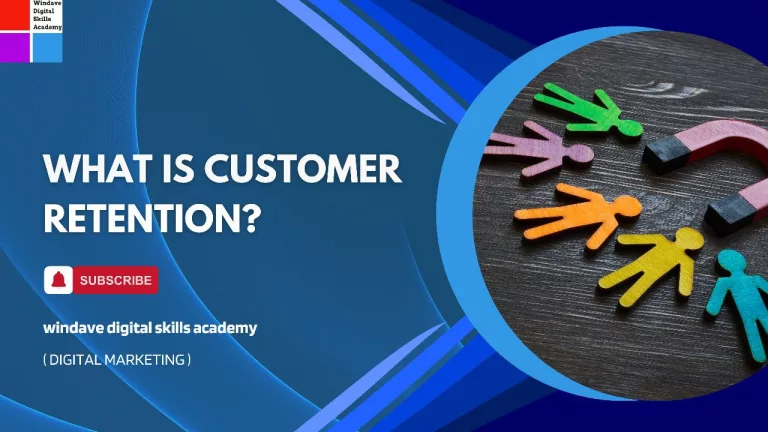What is B2B Marketing: Business-to-Business and what it means?
How to Leverage AI for your Marketing Strategy
Table of Contents
In the dynamic world of commerce, various business models cater to different types of transactions and customer needs. Among these, B2B, or Business-to-Business, is a crucial model that significantly impacts the global economy.
This blog post aims to learn what B2B means, explore B2B marketing and its types, highlight the benefits of B2B marketing for businesses, and compare B2B with B2C (Business-to-Consumer) and D2C (Direct-to-Consumer).
What is B2B?
B2B stands for Business-to-Business. It refers to transactions and interactions between two businesses rather than between a business and an individual consumer. In a B2B model, businesses provide products, services, or solutions to other businesses.
These transactions are often characterized by larger order quantities, higher transaction values, and longer sales cycles compared to consumer-oriented models. Examples of B2B transactions include a manufacturer selling raw materials to a factory, a software company providing enterprise solutions to a corporation, or a wholesale distributor supplying products to a retailer.
What is B2B Marketing?
B2B marketing involves promoting products or services from one business to another. Unlike B2C marketing, which focuses on individual consumers, B2B marketing targets the decision-makers within organizations. The goal is to create awareness, generate leads, and drive sales through strategic communication and relationship-building efforts. B2B marketing strategies often emphasize logic, financial benefits, and the efficiency of products or services.
Types of B2B Marketing and Examples
- Content Marketing
Content marketing involves creating and distributing valuable, relevant, and consistent content to attract and engage a target audience.
In B2B, this might include:
Whitepapers: Detailed reports on industry topics, providing valuable insights and solutions.
Case Studies: Success stories demonstrating how a product or service solved a problem for another business.
Blogs: Informative articles that address industry trends, challenges, and solutions.
Example: A cybersecurity firm publishes a whitepaper on emerging threats and solutions, targeting IT managers in large enterprises.
- Email Marketing
Email marketing remains a powerful tool in B2B marketing, focusing on nurturing leads and maintaining relationships with existing clients.
This includes:
Newsletters: Regular updates on industry news, company developments, and product updates.
Automated Drip Campaigns: Series of emails sent over time to guide leads through the sales funnel.
Example: A SaaS provider sends a monthly newsletter to its subscribers with tips on maximizing the use of its software.
- Search Engine Optimization (SEO)
SEO is critical for B2B companies to ensure their websites rank high on search engines for relevant keywords.
Effective SEO strategies include:
Keyword Research: Identifying and targeting terms that potential clients are searching for.
On-Page SEO: Optimizing website content to be search-engine friendly.
Backlink Building: Acquiring links from other reputable websites to improve domain authority.
Example: A logistics company optimizes its website for keywords like “freight management solutions” to attract traffic from businesses looking for these services.
- Social Media Marketing
While traditionally associated with B2C, social media marketing is increasingly important in B2B contexts.
Platforms like LinkedIn are particularly effective for B2B marketing, facilitating:
Thought Leadership: Sharing expert opinions and industry insights to establish authority.
Networking: Connecting with potential clients and partners.
Advertising: Running targeted ad campaigns to reach specific business demographics.
Example: A consultancy firm uses LinkedIn to publish articles on market trends and engage with decision-makers in relevant industries.
- Account-Based Marketing (ABM)
ABM is a strategic approach that focuses on personalized marketing efforts directed at high-value accounts.
This involves:
Customized Campaigns: Tailoring marketing messages and campaigns to the specific needs of targeted businesses.
Collaboration between Sales and Marketing: Ensuring both teams work together to create a seamless customer experience.
Example: A software company develops a customized marketing campaign for a large enterprise, including personalized emails, targeted ads, and tailored content
Benefits of B2B Marketing for Businesses
- Increased Sales and Revenue
B2B marketing helps businesses reach new clients, resulting in higher sales volumes and increased revenue. Effective marketing strategies can convert leads into loyal customers, driving long-term growth.
- Stronger Customer Relationships
By focusing on personalized communication and understanding client needs, B2B marketing fosters strong, lasting relationships. This leads to higher customer retention rates and more repeat business.
- Enhanced Brand Awareness and Credibility
Consistent and strategic marketing efforts boost brand visibility and establish a company as a leader in its industry. This credibility can attract more business opportunities and partnerships.
- Better Market Insights
B2B marketing involves thorough market research and data analysis, providing businesses with valuable insights into industry trends, customer preferences, and competitive landscapes. This information helps in making informed business decisions.
- Efficiency and Cost-Effectiveness
Targeted B2B marketing campaigns can be more cost-effective than broader B2C campaigns. By focusing on a specific audience, businesses can allocate resources more efficiently and achieve a higher return on investment (ROI).
What is B2C?
B2C, or Business-to-Consumer, refers to transactions between a business and individual consumers. In this model, businesses sell products or services directly to end-users. B2C marketing strategies focus on appealing to the emotions, needs, and desires of consumers, often through advertising, promotions, and social media engagement.
What is D2C?
D2C, or Direct-to-Consumer, is a business model where manufacturers or brands sell their products directly to consumers, bypassing traditional retail channels. This approach allows brands to have greater control over their customer experience, build stronger relationships, and gather direct feedback from consumers. D2C businesses rely heavily on e-commerce platforms (Amazon, Shopify, Jumia, etc.) and digital marketing strategies.
Differences between B2B and B2C
- Target Audience
B2B: Targets other businesses, focusing on decision-makers like executives, managers, and procurement officers.
B2C: Targets individual consumers, appealing to a broader audience based on demographics, interests, and behaviors.
- Sales Cycle
B2B: Typically involves a longer sales cycle due to the complexity of products/services, higher transaction values, and multiple decision-makers.
B2C: Generally has a shorter sales cycle as individual consumers make quicker purchasing decisions.
- Marketing Approach
B2B: Emphasizes rational and logical appeals, focusing on efficiency, ROI, and solving business problems.
B2C: Leverages emotional appeals, brand loyalty, and consumer desires, using impactful advertising and promotions.
- Relationship Building
B2B: Prioritizes long-term relationships, focusing on personalized communication and account management.
B2C: Focuses on building brand loyalty and customer satisfaction through consistent quality and positive experiences.
- Transaction Value
B2B: Involves higher transaction values and larger order quantities.
B2C: Typically involves lower transaction values and smaller, individual purchases.
What We Say
Understanding the distinctions between B2B, B2C, and D2C is essential for businesses to craft effective marketing strategies and achieve their goals. B2B marketing, with its focus on building strong relationships and providing value to other businesses, plays a pivotal role in driving growth and success in the business world. By leveraging the right marketing techniques, businesses can enhance their visibility, credibility, and profitability in the competitive marketplace.
Also, as a business expands, it is best to switch to B2B marketing for longevity and high marketing ROI.
Learn digital marketing strategies to grow your business.




